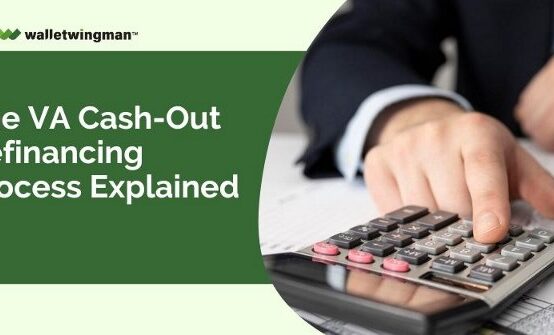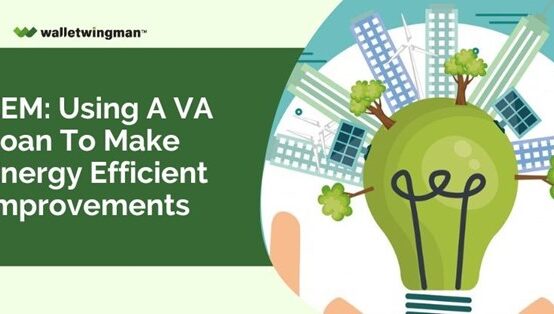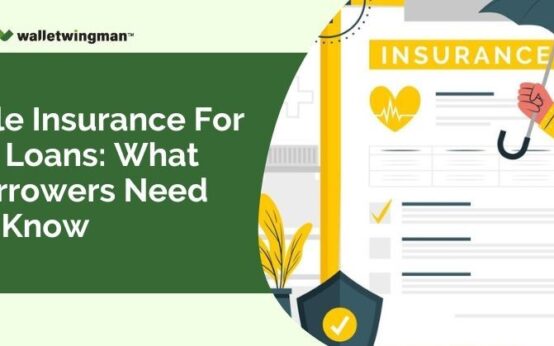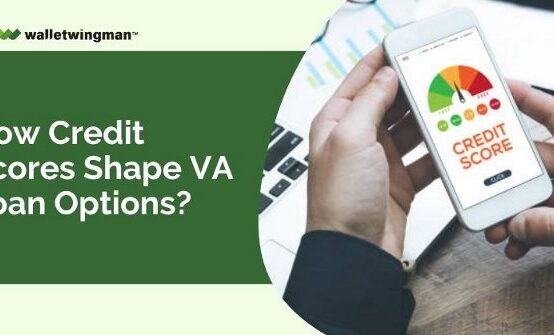Homeowners with an existing VA loan can enjoy a “streamlined” refinance with minimal paperwork and no home appraisal. That’s one of the many benefits the VA home loan program offers to military members and veterans.
But here’s something a lot of homeowners don’t realize.
Even if you have a conventional mortgage loan on your current home, you could refinance to a VA loan to enjoy multiple benefits. For instance, homeowners paying private mortgage insurance (PMI) could eliminate it by refinancing into a VA loan.
Difference Between Conventional and VA Loans

Before we get into the refinancing side, let’s set the stage with some important definitions.
Conventional loan: The “conventional” label distinguishes “regular” home loans from those that receive government insurance or guarantees. A conventional loan does not accept any form of government backing. Conventional financing accounts for most mortgage loans generated in the U.S., usually requiring a down payment.
VA loan: The U.S. Department Of Veterans Affairs (VA) home loan program provides mortgage insurance to lenders who originate VA loans. This program is offered to military members, veterans, and certain qualifying spouses. VA loans offer a range of benefits, such as 100% financing and no mortgage insurance. However, unlike conventional loans, they only require a down payment in rare circumstances.
These financing options also differ when it comes to mortgage insurance.
VA-backed home loans do not require borrowers to pay mortgage insurance, which is a vital benefit of this program. Conversely, conventional loans often require PMI when the borrower makes a low down payment.
Refinancing Into a VA Home Loan

Given the abovementioned differences, you can probably understand why a homeowner might want to refinance from a conventional loan into a VA-backed mortgage.
VA home loan refinance enables homeowners to eliminate their private mortgage insurance policies, reducing monthly housing costs. It could also help you secure a lower interest rate. The benefits can stack up.
It bears repeating: You can refinance into a VA loan regardless of what type of mortgage you currently have in place. We stress this point because many homeowners eligible for VA refinancing don’t even realize it’s possible.
As it states on the Department of Veterans Affairs website:
“The VA home loan benefit is not just for buying homes. Sure, it provides unmatched home buying advantages, but you can also use it to refinance your existing mortgage, whether it’s a VA loan or not.”
No Down Payment Requirement

One of the best aspects of VA loans is that those eligible can borrow home loans without a down payment.
In contrast to traditional home loans, which are frequently accompanied by a significant down payment, the VA loan program enables qualifying individuals to secure their dream home with little or no money from their savings.
Refinancing a regular loan to a VA one allows homeowners to cut down considerably on the down payment and, in the process, to release the capital for other investments or expenses.
Getting Rid of Private Mortgage Insurance

When purchasing a home with traditional financing and a minimal down payment, private mortgage insurance (PMI) is typically required. In the event that the borrower later fails on the loan, this insurance safeguards the lender.
Specifically, private mortgage insurance is required for conventional financing when the loan-to-value (LTV) ratio exceeds 80%.
The average monthly cost of PMI ranges from 0.46% to 1.5% of the loan amount, which can sum up to several hundred dollars per month. And that’s on top of the principal and interest you’re already paying.
This is where VA refinancing comes back into the picture.
As mentioned above, VA-guaranteed mortgage loans do not require borrowers to pay mortgage insurance. They need a one-time funding fee to sustain the program, but that’s a much smaller cost burden when compared to PMI.
By refinancing from a conventional to a VA loan, a homeowner could potentially pay off their conventional mortgage, eliminate PMI, and reduce their housing costs—all in one transaction!
Streamlined Refinance Options
For homeowners who want to refinance their ongoing mortgage under the VA, its Interest Rate Reduction Refinance Loan (IRRRL) program, also known as the VA loan refinance.
It is this program that simplifies the refinancing process, particularly for holders of VA loans, by requiring only minimal paperwork and scrutiny by underwriters.
For qualified homeowners, the quickest way to refinance a private mortgage to the VA loan is to take advantage of the IRRRL program, designed to simplify the process with a minimum-dust approach.
Switching From an ARM to a Fixed-Rate Loan

Eliminating private mortgage insurance is a good enough incentive for VA refinancing. However, this process can benefit homeowners in other ways as well.
For example, homeowners with an unpredictable adjustable-rate mortgage (ARM) could refinance into a more stable 30-year fixed-rate VA loan. With this refinancing strategy, you’re essentially replacing uncertainty with predictability.
Some home buyers use ARM loans because they offer a lower initial interest rate. (Emphasis on the word “initial.”) However, once the initial phase expires, the adjustable mortgage lives up to its name, with an interest rate that adjusts from one year to the next.
If the rate adjusts upward, it will increase the homeowner’s monthly payments.
ARM loans do have some upsides. Some borrowers use them to save money during the first few years of homeownership and then either sell or refinance the home before the first adjustment occurs.
However, over the long term, an adjustable-rate mortgage loan could potentially increase the homeowner’s housing costs. With VA refinancing, however, a homeowner could transition away from an unpredictable ARM loan and into a stable fixed-rate mortgage product.
Flexible Credit Requirements
Another merit of VA loans is that they provide borrowers with much more opportunities to balance their scores.
While traditional mortgage loans often need a better credit score to get approved, VA loan credit score requirements are flexible and lenient on this aspect.
People who are eligible to shop for loans with less-than-perfect credit histories could still qualify for a loan with low VA loan refinance rates and favorable terms, which increases the accessibility of homeownership to a broader range of individuals.
Homeowners whose credit score may not be the best can be given a chance to apply for a VA loan where refinancing would help improve their terms and create a sound financial future.
Tapping Equity With VA Cash-Out Refinance
There’s one last VA loan refinancing benefit we need to cover, and it has to do with home equity. If you’re wondering, can you refinance a VA loan? The Department of Veterans Affairs also has a cash-out refinance VA loan that allows homeowners to convert some of their built-up equity into cash.
With this product, you would essentially take out a bigger loan than what you owe on your current mortgage. You would then receive the difference between these two figures in the form of cash at closing.
According to the Department of Veterans Affairs: “The VA cash-out loan amount can be up to 100 percent of your home’s value in many cases.”
Like the other benefits mentioned in this article, the cash-out refinancing option is available to homeowners with VA or conventional mortgage loans.
Protection Against Foreclosure

A VA loan comes with one of the most critical security measures, which is protection against foreclosure.
If there is a financial need or defaulting of loan payback, the VA provides help to eligible borrowers in order to enable them to keep their homes or resist foreclosure.
This protection can give a feeling of calm to those homeowners under the stress of the economic unrest caused by knowing they have a recourse and support in hard times.
The refinancing of conventional mortgages into VA loans can be the crucial source of the safety net for homeowners, enabling them to protect their investments in their homes.
Bottom line
For qualifying homeowners, the option to refinance from a standard mortgage to a VA loan can bring about a variety of positive implications in different aspects.
The upsides of a VA loan cannot be overembellished, from minimizing the need for a down payment to qualifying for streamlined refinancing and flexible terms of credit.
With the help of such benefits, homeowners can customize their home loan structure according to their needs, decrease financial pressure, and reach a greater level of stability and security during their journey of homeownership.
Hence, for eligible veterans, military personnel on active duty, and deserving surviving spouses, VA refinancing becomes the most economically attractive alternative to incurring long-term gains and stability in their finances.


 The VA Cash-Out Refinancing Process Explained
The VA Cash-Out Refinancing Process Explained  Answered: The Top 10 Questions About the VA Loan Program
Answered: The Top 10 Questions About the VA Loan Program  EEM: Using a VA Loan to Make Energy Efficient Improvements
EEM: Using a VA Loan to Make Energy Efficient Improvements  Occupancy Rules For Homes Purchased With A VA Loan
Occupancy Rules For Homes Purchased With A VA Loan  Title Insurance for VA Loans: What Borrowers Need to Know
Title Insurance for VA Loans: What Borrowers Need to Know  How Credit Scores Shape VA Loan Options?
How Credit Scores Shape VA Loan Options? 